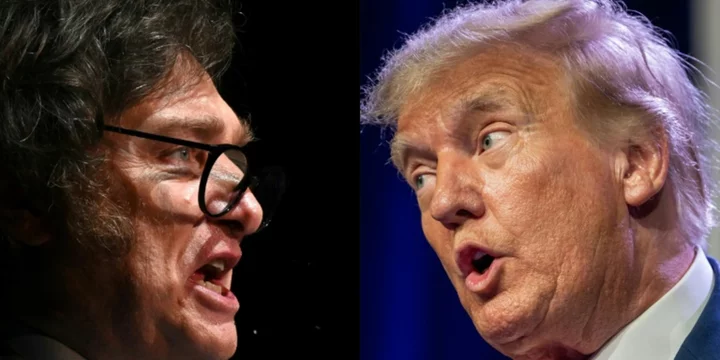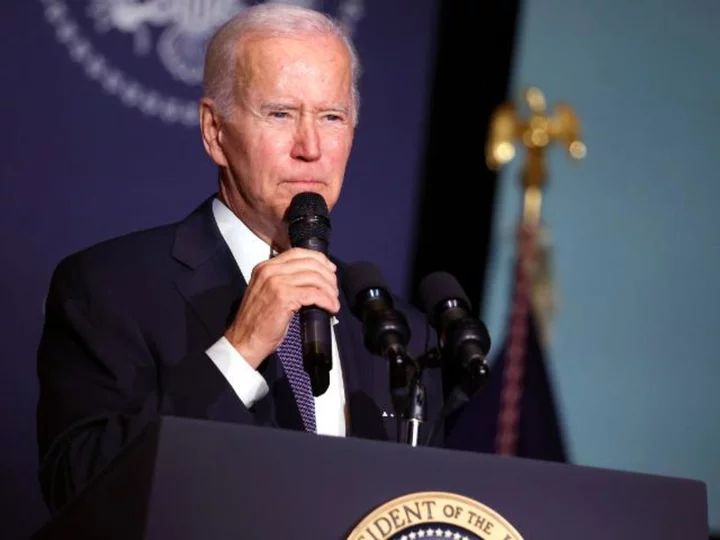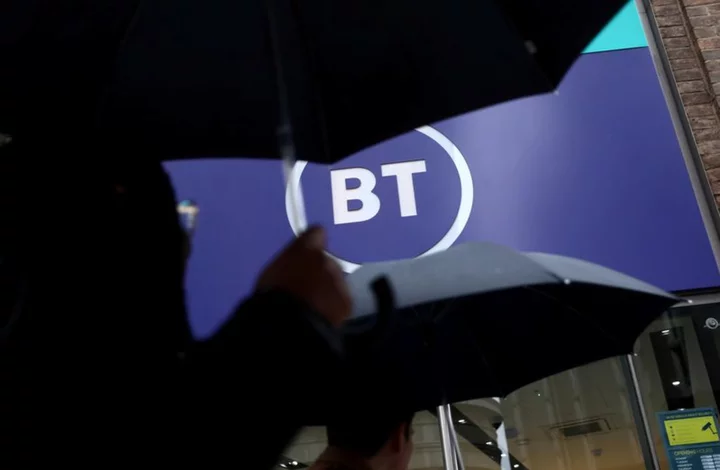The US Federal Reserve is widely expected to hold interest rates steady on Wednesday after a summer of mixed economic data, while leaving the door open to another hike if needed.
The Fed has raised interest rates 11 times over the last 18 months, lifting its key lending rate to a level not seen for 22 years as it tackles inflation still stubbornly above its long-term target of two percent.
After falling sharply over the last year, inflation has ticked up again in recent months due to a spike in energy costs, keeping up the pressure on the Fed.
But analysts and traders still broadly expect the US central bank to hold rates steady on September 19-20 in order to give policymakers more time to assess the health of the world's largest economy.
"We think the Fed is done with its tightening cycle," EY Chief Economist Gregory Daco told AFP. "That view has not changed over the past couple of months."
"After raising rates in July, we expect the Fed to follow through on strong pre-meeting signals and hold rates steady," Deutsche Bank economists wrote in a note to clients on Friday.
- Finding the 'golden path'-
The rate-setting Federal Open Market Committee (FOMC) now finds itself in a difficult situation as it seeks to address inflation through interest rate hikes while avoiding a recession, a feat that economists call a soft landing.
Recent economic data showing strong economic growth in the first half of the year, inflation trending downward, and a softening jobs market suggests the Fed may just be able to pull it off.
"I think, in general, the economy is doing relatively well, but we are seeing signs that there is an economic slowdown underway," said Daco from EY.
Analysts at Goldman Sachs recently cut their forecast for a recession in the United States from 20 percent likelihood down to 15 percent, while other economists -- including those in the Fed's research team -- say they no longer expect the US to enter a recession.
"Recent data should leave the Fed encouraged by ongoing disinflation but concerned about re-acceleration in inflation because of the strength in activity," Bank of America economists wrote in a note to clients.
Some FOMC members -- including Fed Chair Jerome Powell -- have indicated that they see a narrow path for the Fed to achieve a soft landing in the coming months.
"I believe there is a golden path opportunity that is unusual, in recent modern Fed history," Chicago Fed President and FOMC member Austan Goolsbee said during a recent interview broadcast on NPR.
"If you look at expectations in the marketplace, there's a growing confidence that we can pull it off," he continued, adding that it hinged on the Fed "remaining attentive to the data."
Others policymakers, including Fed governor Michelle Bowman, have said in recent weeks that additional rate hikes will likely be needed to bring inflation down to its two percent target.
Pausing rate hikes in September while forecasting further monetary tightening through the Fed's accompanying economic forecasts would give policymakers more time to assess the incoming data, while keeping the threat of more monetary tightening alive in the financial markets.
- One final hike? -
"We expect participants to retain a bias toward one more rate hike as they did in June," KPMG US Chief Economist Diane Swonk wrote in a recent blog post.
"The Fed is not ready to abandon its higher-for-longer mantra until it achieves a more sustained drop in inflation," she added.
"In our base case, the FOMC will 'skip' hiking at their meeting this month and then deliver one final 25bp hike in November," Citigroup economists wrote in a recent note to clients.
Traders currently assign a probability of more than 95 percent that Fed will hold its key lending rate its current level of between 5.25 and 5.50 percent on September 20, according to data from CME Group.
But while there is broad agreement on a September pause, there is less of a consensus around a November hike.
Traders currently assign a probability of just over 65 percent that Fed will hold rates steady again in November, according to CME Group data.
Even if the Fed ultimately chooses not to hike in November, its decision to forecast another hike this year could nevertheless serve a useful function, analysts say.
"The last thing that Fed policymakers want is for markets to price the end of the tightening cycle, because it will then infer that the next move will be lower -- essentially rate cuts," Daco from EY told AFP.
Nevertheless, EY still expects the September pause will morph into the end of the current hiking cycle, leaving already-high interest rates to do the necessary work to bring down inflation.
"Factoring forward looking perspectives on employment, on inflation, will essentially lead the Fed to prolong its pause," he said.
da/dw









